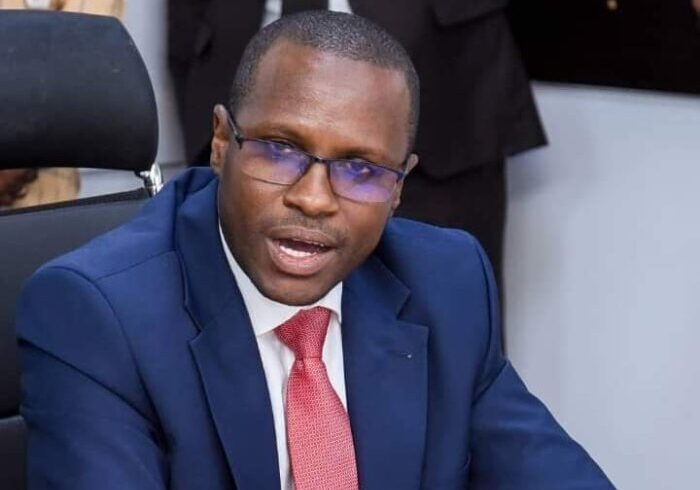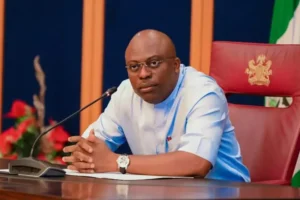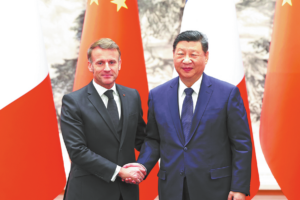
The Independent Corrupt Practices and Other Related Offences Commission (ICPC) has urged state governments to be more proactive in the fight against corruption, encouraging commissioners of information to utilise strategic communication as a tool for promoting transparency, accountability, and ethical change at the grassroots level.
Speaking at a one-day roundtable in Abuja on Wednesday, ICPC Chairman, Dr. Musa Adamu Aliyu, SAN, stressed that the key battleground against corruption is at the state and local government levels, those closest to the people, where resource leakages cause the most harm.
The workshop, themed “Partnership for Strengthening Transparency at the State and Local Government Levels Through Strategic Communication,” brought together commissioners of information, lawmakers, media professionals, and representatives from civil society.
Dr. Aliyu emphasised that transparency and accountability are essential to good governance and should be embedded as part of the national culture, not merely as policies. He stated that when public resources are mismanaged, it is ordinary Nigerians who bear the greatest burden—children without textbooks, farmers without access roads, and the sick without healthcare.
He emphasised the importance of strategic communication in shaping public behaviour and fostering a culture of integrity, especially through collaboration with media, civil society, and community stakeholders.
The Chairman also reiterated the commission’s alignment with the National Anti-Corruption Strategy (NACS 2022–2026), emphasising the need for deliberate, consistent messaging that involves citizens, fosters trust, and promotes ethical change.
Representing the Chairman of the Senate Committee on Anti-Corruption, Emmanuel Udende, the committee clerk, Mr. Uboh Emunike, called on state information commissioners to act as “generals in the war against corruption,” describing the dissemination of accurate, timely information as a powerful weapon against unethical practices.
Also speaking, Chairman of the House Committee on Anti-Corruption, Hon. Prince Kayode Akiola, warned that corruption remains a major impediment to Nigeria’s development.
He called on information managers across the country to use their platforms to demand accountability and promote transparency across all tiers of government.
Akiola gave assurances that the National Assembly would continue to strengthen legal frameworks to support a corruption-free governance system.
The Special Guest of Honour, Minister of Information and National Orientation, Alhaji Mohammed Idris Malagi, restated the federal government’s commitment to anti-corruption efforts.
He stated that President Bola Ahmed Tinubu has made the fight against corruption a key pillar of his administration’s Renewed Hope Agenda, emphasising its importance.
Malagi dismissed perceptions that anti-corruption agencies are being used for political witch-hunts, assuring stakeholders that the current administration is focused on institutional reforms, transparency, and public trust.
Borno State Commissioner for Information, Usman Tar, committed the state government’s full support to anti-corruption efforts and expressed readiness to implement local policies that align with both state and federal transparency objectives. He highlighted that the state would continue to take an active role in promoting accountability at all levels.
The ICPC also used the occasion to unveil its Strategic Communication Framework, which focuses on fostering public engagement, promoting ethical reorientation, and building institutional trust.
The framework includes proactive information disclosure, participatory governance mechanisms, behaviour-change campaigns, and strong media collaboration. The Commission noted that its communication approach is guided by global best practices, including the United Nations Convention Against Corruption (UNCAC), and is designed to resonate with diverse audiences through local languages, storytelling, and youth-focused “edu-infotainment.”
Dr. Aliyu highlighted ongoing ICPC initiatives, such as Constituency and Executive Projects Tracking, System Studies and Reviews, and the National Ethics and Integrity Policy, as examples of proactive measures aimed at preventing corruption and enhancing service delivery.
He urged information commissioners and media leaders to collaborate with the ICPC in strengthening accountability messages, embedding anti-corruption values into state governance systems, and ensuring integrity becomes part of the national ethos.
Dr. Aliyu reminded stakeholders that the fight against corruption is not a sprint but a marathon that demands persistence, coordination, and communication that inspires action. He urged unity among all tiers of government, civil society, and the media in fostering a Nigeria where integrity prevails and accountability becomes standard.





